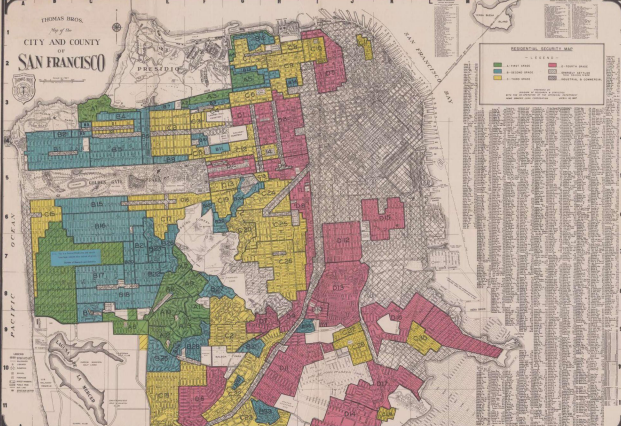Reparations
Five Noteworthy Reparations and Community Investment Projects Across the US
"The United States has a moral and legal obligation to provide reparations for the enslavement of Africans and its lasting harm on the lives of millions of Black people." - Rep. Cori Bush (D) May, 2023
At Civility Localized, our mission is to help communities grow with dignity. One of the causes close to that mission is Reparations for Black Americans.
Not only does Civility Localized actively support and seek out engagement contracts with governments tackling Reparations projects, but we also keep up with Reparations and Community Investment initiatives across the country.
Since 2020 we’ve seen a growing movement to tackle the question of reparations at the state and local levels. More local governments are forming Reparations Task Forces, Committees, and Commissions. We know that more will follow. When they do, we intend to be there to inform and guide with honesty, equity, and best practices.
As Author and Brookings Institute Senior Fellow Andre Perry said in his interview with Nikole Hannah-Jones on The 1619 Project, “Those (local) efforts will never be comparable to the federal government redressing the injuries caused by slavery and Jim Crow racism and housing discrimination, but we can create a reparative culture by creating local reparations programs that work their way up to the federal government.”
Here is a short list of local Reparations and Community Investment projects we’ve gathered from across the country.
Asheville, North Carolina
The Asheville Community Reparations Project is a groundbreaking local government initiative launched in 2020 by the City of Asheville and Buncombe County, North Carolina. It aims to address historical wrongs and create a more equitable future.
The 25-member Asheville Reparations Commission seeks to provide reparations for Black residents of Asheville and Buncombe County through community investments, restorative justice, and healing.
Christine Edwards, MPA, Founder and Principal Consultant at Civility Localized was named Project Management Lead for the Asheville Community Reparations Commission in December 2022. The Commission’s two-year term ends in 2024 and Edwards is tasked with guiding the development of recommendations. This community investment project is focused on social good and advancing equity.
College Park, Maryland
On June 9, 2020, the City of College Park passed Resolution 20-R-16 Renouncing Systematic Racism and Declaring Support of Black Lives. The mayor and council voted to “acknowledge and apologize for our city’s past history of oppression, particularly with regards to the Lakeland community, and actively seek opportunities for accountability and truth-telling about past injustice, and aggressively seek opportunities for restorative justice.”
The Commission was created in 2022 with the goal to promote restorative justice for the Lakeland Community, a historically Black community in College Park decimated by urban renewal. The commission formed three committees:
Community Engagement Committee aims to identify, engage and center those directly impacted in the restorative justice process as well as increase community awareness and participation to help maintain a strong historical recognition of Lakeland and Lakelanders.
Truth and Reconciliation Committee’s goal is to provide formal and informal opportunities for testimonials and other forms of truth-telling to ensure the development of a publicly available historical record of Lakeland's history and the impact of the harm caused by Urban Renewal.
The Restorative and Transformative Justice Committee was formed to develop an action plan that actively engages individuals, entities, and stakeholders who brought about harm into the restorative justice process; ensure that the historical records provide the basis for restorative and transformative measures, with preservation values attached to concrete socio-economic benefits from its long-term survival; and implement a community-centered vision for Lakeland redevelopment and revitalization in the areas of transportation, education, public safety, and sustainability that does not replicate harm.
The State of California
On September 30, 2020, California Assembly Bill 3121 was enacted. California Assembly Bill 3121 establishes the Task Force to Study and Develop Reparation Proposals for African Americans, with a Special Consideration for African Americans Who are Descendants of Persons Enslaved in the United States (Task Force or Reparations Task Force). The purpose of the Task Force is to study and develop reparation proposals for African Americans; to recommend appropriate ways to educate the California public of the task force's findings; and to recommend appropriate remedies. The committee is expected to submit its final report in June 2023.
On May 6, 2023, California’s reparations task force voted to approve recommendations on how the state may compensate and apologize to Black residents for generations of harm caused by discriminatory policies.
The committee, which first convened nearly two years ago, gave final approval at a meeting in Oakland to a hefty list of proposals that now go to state lawmakers to consider for reparations legislation.
San Francisco, California
The San Francisco African American Reparations Advisory Committee was formed in 2020 by the San Francisco Board of Supervisors. The committee is tasked with developing a plan to address the institutional, City-sanctioned harm that has been inflicted upon African American communities in San Francisco. The committee is composed of 15 appointed members and is expected to submit a final report in June 2023.
Here are some of the specific goals of the committee:
To identify the ways in which City policies have harmed Black lives.
To develop specific actions to address discrimination and inequities in areas like housing, education, transit access, and food security.
To make recommendations for repairing harm in Black communities.
The committee's work is important because it is an attempt to address the legacy of slavery and racism in the United States.
Evanston, Illinois
In March, 2021, Evanston, Illinois became the first U.S. city to make reparations available to its Black residents for past discrimination and the lingering effects of slavery. The Chicago suburb’s City Council voted to distribute $400,000 to eligible black households as $25,000 housing grants for home repair or down payments on property, and pledged to distribute $10 million over 10 years.
Alderman Rue Simmons, who proposed the program that was adopted in 2019, said “This is set aside for an injured community that happens to be Black, that was injured by the city of Evanston for anti-Black housing policies.”
In January 2023, PBS aired a documentary directed by Erika Alexander titled The Big Payback, chronicling the evolution of this historic reparations initiative.
Thank you for reading our list of Reparations Projects across the US. What cities or states would you add to this list? With over 100 reparations initiatives being developed across the US, it’s hard to keep track of them all.
As a consulting firm, we hope to cultivate greater belonging and equity for Black communities historically divested of resources due to the evils of systemic racism. This mission is embedded in our Core Company Values as well as in our DEI&B policy.
We will continue to keep an eye on reparations projects across the country, and government trends in community investments.
To learn more about restorative justice, The Little Book of Race and Restorative Justice by Fania Davis can be helpful.
At Civility Localized, we specialize in guiding governing bodies through the steps necessary to make processes, programs, and resources more equitable and inclusive. To learn more about building a reparations initiative, we’d be happy to provide a consultation and to demonstrate our expertise and passion in this area.





